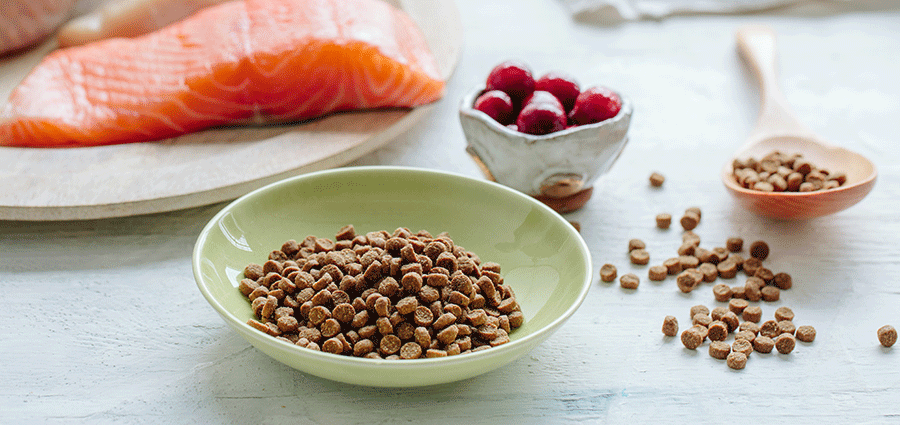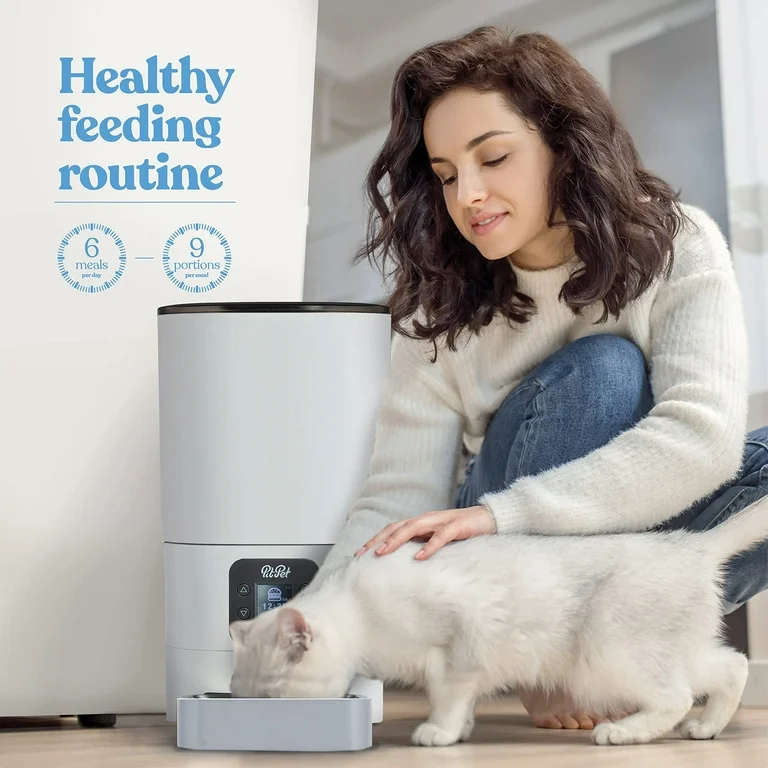Medicine: Cat Loss Weight

Noticing your kitty getting a bit too skinny? That’s quite right if you’re worried about your cat suddenly shedding those pounds. Cats do their best job at hiding what feels wrong, so weight loss might be the first indicator that something is off. Keep reading for why your kitty might be losing a few pounds and some steps you can take to help them.
RELATED: 8 Tips To Help Your Cat Lose Weight
1. Understanding Weight Loss in Cats
Weight loss in cats is not necessarily due to decreased food intake. Cats may lose weight for many reasons: an underlying medical condition, behavioral change, or even environmental stress. Just like in humans, a significant change in the body weight of a cat also warrants closer inspection to ensure that everything is well.
The reasons for weight loss in cats are sometimes not easily visible to pet owners. Cats do not cry or grumble to complain like we do, so it usually requires an observant eye to see the changes. Below are some of the common reasons why your cat could be losing weight, focusing on health-related causes, stressors, age-related changes, and dietary factors.
2. Common Medical Problems Leading to Weight Loss in Cats
Many medical problems cause unapparent weight loss in cats. Some of the most common medical causes include the following.
a. Hyperthyroidism
Hyperthyroidism is a very common disease in cats over ten years. It is a disease characterized by the excessive production of thyroid hormone by the thyroid gland, thereby accelerating the metabolism. Cats with hyperthyroidism tend to eat more but lose more weight since their metabolism rate is accelerated. Other possible symptoms include increased thirst, hyperactivity, and dirty fur.
b. Diabetes Mellitus
Another disease that can lead to weight loss is diabetes in cats. In diabetes, a cat’s body is unable to use glucose as fuel, so the body starts to break down fat and muscle tissues for fuel. Some of the most common signs of diabetes are frequent urination, increased thirst, and even a sweet smell on the cat’s breath. If there is an assumption of diabetes, a veterinarian can easily test the cat’s blood and urine for confirmation.
c. Gastrointestinal Disorders
Diseases that affect the feline’s digestive system – like inflammatory bowel disease or pancreatitis – can also lead to weight loss. GI diseases can also manifest themselves in symptoms such as diarrhea, vomiting, and lack of appetite. Cats affected by such conditions would often be picky with their food or shun particular types of food due to the distress associated with them.
d. Dental Disease
Surprisingly, dental problems can also lead to weight loss. In pain, cats usually cannot eat and gradually lose weight. Some signs that your cat has a dental disease include bad breath, drooling, or difficulty in chewing. Regular dental checks can help avoid this problem because untreated dental problems can lead to other infections that may eventually be detrimental to their health.
NEXT READ: How Much Daily Exercise Do Cats Require?
3. Psychosocial Factors Contributing to Feline Weight Loss
Cats are habits-forming animals. Any slight alteration in their environment and lifestyle may make them suffer through some kind of stress, which may stimulate the metabolism in terms of appetite and weight.
a. Stress and Anxiety
The main sources of anxiety in cats may be due to changes in family structures, moving house, or bringing a new pet home. Cats tend to lose weight because the increase in cortisol levels translates to stress. You can see different behavioral changes such as hiding, over-grooming, or even aggression and decrease in appetite.
b. Boredom or Depression
Even mental stimulation can be the next culprit of weight loss. Cats, being active animals, require physical and psychological activity. If they sense boredom or lack of stimulation, they may lose interest in food. Adding toys, climbing areas, and games can re-engage your cat’s interest in eating and movement.
4. Age-Related Weight Loss in Cats
As cats grow older, their metabolism and nutritional needs change. Older cats often experience weight loss due to a natural slowdown in metabolism, muscle loss, and dental issues. Typically, older cats develop arthritis or some other issues with their joints, causing movement pain and affecting their appetite.
If your cat is getting older, talk to your veterinarian about changing their food for any changes they will encounter in life. High protein foods, and nutrient sources that contain essential fatty acids, can help avoid losing weight and muscle mass.
5. Nutrition Factors: Is Your Cat Getting Enough Nutrition?
At other times, weight loss in cats has nothing to do with what is wrong with your cat but rather with what is missing from your cat’s diet. Cats are obligate carnivores, which means they must have animal protein to maintain their health.
a. Low-Quality Food
The low-quality food may lack the nutrients your cat requires. Cats lose weight for a simple reason: perhaps they just aren’t getting enough protein, fats, or whatever else they need.
b. Portion Control and Meal Frequency
Because cats are instinctively inclined to eat small, frequent meals, they quickly begin to lose weight if they aren’t receiving adequate food or if there are too many pets in the household competing for food. Make sure your cat has access to an adequate amount of food without competition.
c. Food Sensitivities and Allergies
Cats, much like humans, can become allergic or sensitive to a particular ingredient. This allergy is what might make your cat not eat at all or cause digestive upset and lead to weight loss.
6. Preventive Measures and Treatment to Lose Weight in Cats
The moment you observe any of the following symptoms, it is high time to take your kitty to the vet. These are some of the means through which you, as well as your vet, can tackle the situation.
a. Diagnostic Tests
The veterinarian could recommend the number of blood tests, ultrasounds, and X-rays to be taken in order to be well diagnosed. The diseases include infections such as those caused by viruses and bacteria, functional failure of organs, and many more, which would be treated according to the diagnosis.
b. Medication and Therapy
For hyperthyroidism and diabetes, the treatment might be medication, to insulin therapy. For the gastrointestinal, diet has to change and in some cases, anti-inflammatory medication is administered.
c. Change in Diet
The general illness also finds its solution in the diet. A more superior or nutritionally better food of preference can make all the difference if the problem lies with the diet. Discuss with your vet what diets are rich in protein and fat, especially for senior or active cats.
d. Stress Reduction Techniques
If your cat is stressed or anxious, attempt to get him to relax. This can be done through setting up safe space in your house, using a pheromone diffuser, or spending more time with your feline friend to make them feel secure.
NEXT READ: 6 Reasons Why Cats Spend So Much Time Sleeping
7. How to Help Your Cat Maintain Their Healthy Weight
Having your cat at the right weight isn’t just about food; it’s a balanced lifestyle. Here are some practical steps to help.
- Interactive Play: Engage your feline friend in daily play sessions to keep them thinking and physically active.
- Follow-up Vet Visits: Schedule regular vet visits where you can catch early conditions that may arise.
- Monitor for Weight: Check your feline friend’s weight regularly at home by using the pet scale or during appointments at the vet.
- Dietary variety: Provide to keep the cat curious about its meals. Just be sure not to feed them poisonous substances such as onions, garlic, or chocolates.
Conclusion
Something as simple as health condition or as complicated as psychological stress can be a cause for weight loss in cats. Keep a watchful eye and prevent early, and you will make your cat live longer and healthier. Always ask your veterinarian to check if the changes in your cat’s weight or eating habits are significant. After all, our feline friends do not always show discomfort, and it is up to us to ensure they live their lives to the fullest.
FAQs
Q1: Can I tell if my cat is too thin?
Ans: If your cat’s weight loss is evident, or even if they appear “skeletal” around the spine and ribs, consult a vet. Subtle loss of weight can indicate an illness; thus, do weigh your cat regularly.
Q2: Can I help my cat to get fatter?
Ans: Yes, a veterinarian can advise on high-protein diets or customized feeding plans. Avoid “free feeding” too much, as that can turn into an overfeed, but do provide many small meals during the day.
Q3: Is weight loss typical in older cats?
Ans: Well, in a way, yes, aging does tend to include some degree of weight loss. Yet, significant or sharp weight loss is not typical. Healthy elderly cats need regular check-ins and consultations with a veterinarian as their dietary and medical needs change.





